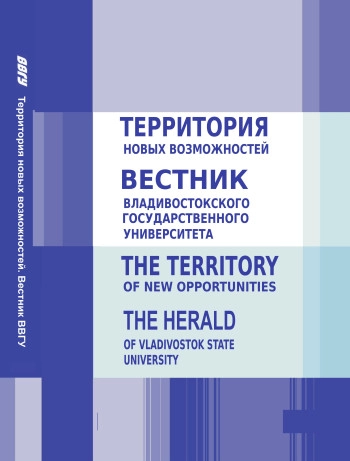graduate student
Russian Federation
employee
employee
he article deals with issues of development of economies that are under sanctions restrictions, which create unequal competition conditions. For such economies, it’s very important to choose a development model in accordance with foreign trade policy: it can be export-oriented, import substitution models, or a combination of both. The purpose of the study is to identify the features of export-oriented and importsubstituting models of economic development under unequal competition in the world market. The article studies theoretical basics for these models, including for unequal competition conditions in the world market. The Iran and Russia examples show specifics of their development, manifested in foreign trade flows reorientation and activation of their own production in key industries. Both require significant efforts and realized under strong short-term shocks. However, the export orientation and import substitution combination is the best possible development option in unequal competition conditions, because it can compensate a significant part of losses from sanctions restrictions in the long-term period.
economic development, sanctions restrictions, development models, foreign trade policy, unequal competition, world market, export orientation, import substitution
1. Strategy for spatial development of the Russian Federation up to 2030 with a forecast up to 2036. The RF Government. December 28, 2024, No. 4146-r. ConsultantPlus. URL: https://www.consultant.ru/document/cons_doc_LAW_495567/
2. Obolensky V.P. Protectionism and free trade in modern world. World Economy and International Relations. 2013; (12): 14–23.
3. Titova O.V., Voskanyan N.A. Import substitution: concept, essence, features. Innovative economy: development and improvement prospects. 2021; 7 (57): 105–110.
4. Maksimtsev I.A., Shimko P.D., Shubaeva V.G. World economy and international economic relations. Moscow: Yurait; 2023. 431 p.
5. Litvinov A.I. Modern trends of protectionism in international trade. Russian Foreign Economic Bulletin. 2023; (3): 117–125.
6. Milovidov V., Asker-zade N. Protectionism 2.0: new reality in the age of globalization. World Economy and International Relations. 2020; 64 (8): 37–45.
7. DOI:https://doi.org/10.20542/0131-2227-2020-64-8-37-45
8. Maltsev A.A., Chichilimov S.V. To the question of the evolution of the opposition of free trade and protectionism in the 20th–21st centuries. The Bulletin of the Institute of Economics of the Russian Academy of Sciences. 2023; (1): 21–38.
9. Islamov G.D. Foreign trade policy of the state: meaning, goals and principles. RPPE. 2015; 11 (61): 219–224.
10. Gulin K.A., Mazilov E.A., Ermolov A.P. Import substitution as a tool for activating the socio-economic development of territories. Problems of territorial development. 2015; 3 (77): 7–25.
11. Silaeva V.A. Effectiveness of sanctions in international politics. Bulletin of MGIMO University. 2021; 14 (4): 136–153.
12. Perekhod S.A., Mkhitaryan A.V., Selifonkina D.S. International sanctions against Russia (2014–2024): assessment and implications for the financial market. The Bulletin of the Institute of Economics of the Russian Academy of Sciences. 2024; (4): 116–138.
13. Timofeev I.N., Sokolshchik Yu.S., Morozov V.A. Sanctions against Iran: Lessons for Russia in the new international context. Vestnik of Saint Petersburg University. International Relations. 2022; 15 (4): 405–420.
14. Safonov I.N. Counteracting Sanctions and Adapting to the Sanctions Regime. Iran's Experience. University. 2023. URL:pubs/share/809754047.pdf (accessed date: 24.05.2025). https://stratpro.hse.ru/mirror/
15. Zernova L.E., Farzanian M. Analysis of the import substitution experience in Iran. Innovative Science. 2016; 3-1 (15): 106–109.
16. The RF State Program «Development of Industry and Increasing its Competitiveness». April 2014, No. 328. Government http://government.ru/docs/all/91634/ (accessed date: 24.05.2025).
17. The RF President Decree «On measures to ensure technological independence and security of the critical information infrastructure of the Russian Federation». March 30, 2022, No. 166. President of Russia. URL: http://www.kremlin.ru/acts/bank/47688 (accessed date: 24.05.2025).
18. Nureyev R.M., Busygin E.G. Economic sanctions against Russia: short and medium term consequences for the oil and gas industry. JER. 2017; (3): 6–22.





